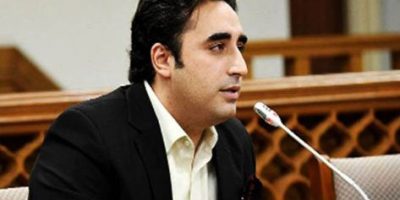Second mini-budget presented in five months, non-filers allowed to purchase cars up to 1300cc

ISLAMABAD (DNA) – Finance Minister Asad Umer on Wednesday while presenting the Finance Supplementary (Second Amendment) Bill, 2019 said that this is not a budget but a reforms package for the uplift of various sectors.
Finance Minister Asad Umar presented the mini-budget through the Finance Supplementary (Second Amendment Bill), 2019 before the National Assembly in Islamabad on Wednesday.
The minister announced to reduce the tax for the small and medium enterprises sector from 39 percent to twenty percent to encourage business activity by low income investors especially the youth.
Umar went on to say that to provide low-income housing, loans will be decreased to 20 per cent. Rs5 billion revolving fund will be introduced.
He said: “Withholding tax for filers on banking transactions will be eliminated to encourage the culture of paying taxes. Non-fillers can purchase small and mid-size cars up to 1300CC, but the tax would be increased.”
“The Small and Medium Enterprises (SMEs) are the backbone of the economy as employment opportunities cannot be produced without SME sector,” the minister said and added the PTI in its manifesto prioritised providing employment to the youth. This cannot be done if SMEs do not have the necessary funding.
Asad Umer said that special economic zones have been formed keeping in mind the interest of CPEC, adding that all machinery in special economic zones will be exempted from all taxes.
Announcing measures to cut red tape, lower taxes for small and medium-sized businesses and cutting taxes on imports of industrial raw materials, he said the government had to improve conditions for local businesses to bring its public finances under control.
“Until there is investment, the country s economy cannot move forward,” he told parliament above the jeers of opposition lawmakers. “This is not a budget, it is a reform package.”
He said a full economic medium-term reform package would be presented next week.
With growth set to drop to around 4 percent this year from 5.8 percent last year, a yawning current account deficit and a fiscal deficit of almost 7 percent of gross domestic product, Pakistan faces heavy pressure to reform its economy.
Since coming to power in August, much of the government s effort has focused on staving off a balance of payments crisis that has seen its foreign exchange reserves dwindle to cover only two months of import payments.
Umar said taxes on imported luxury cars would be raised, while local manufacturers would be helped by a cut in import duty on imported raw materials and on machinery imported into special economic zones.
Customs duty would also be cut on equipment for renewable energy generations for five years, in a bid to ease a chronic energy crisis that has left Pakistani businesses and households suffering repeated power outages and gas supply interruptions.
In addition, a series of tax measures would be introduced to help the local stock market, with a removal of withholding tax and measures to allow capital losses to be carried over from one year to the next.
Salient features of Finance Supplementary (Second Amendment) Bill of 2019
- Withholding tax for filers on banking transactions will be eliminated.
- Non-fillers can purchase small and mid-size cars up to 1300CC.
- Tax increased on purchase of vehicles over 1800cc.
- Taxes on marriage halls reduced to Rs5000.
- Duty on import of newsprint eliminated.
- Tax being reduced on small business institutions.
- Government to introduce Rs5 bn Qarz-e-Hasna scheme
- To provide low-income housing, loans will be decreased to 20 percent.
- Rs5 billion revolving fund will be introduced.
- Special economic zones have been formed keeping in mind the interest of CPEC.
- Pakistan’s imports have declined.
- Pakistan’s fiscal losses have declined.
- Import duty on raw material is being reduced.
- No tax on bids for sports franchises until profitability.
- Super tax will be eliminated for non-banking companies from July 1.
- Rs1470 sales tax imposed on imported mobile phones worth $30 to $100
- Rs1870 sales tax imposed on imported mobile phones worth $100 to $200
- Rs1930 sales tax imposed on imported mobile phones worth $200 to $350
- Rs6000 sales tax imposed on imported mobile phones worth $350 to $500
- Rs10300 sales tax imposed on imported mobile phones worth more than $500
- New industries will be exempted from income taxes for five years
Related News

Chairman Bilawal Affirms PPP’s Dedication to Labor Empowerment and Social Justice
DNA KARACHI/ISLAMABAD/LAHORE, April 30: Chairman Pakistan People’s Party (PPP) Bilawal Bhutto Zardari, reaffirmed the foundingRead More

US, Pakistan discuss trade, investment, and regional security
ISLAMABAD, APR 30 /DNA/ – A US State Department delegation led by Acting Under SecretaryRead More


Comments are Closed